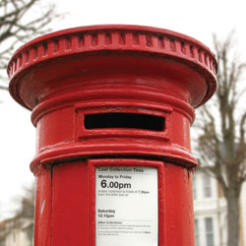The use of direct mail dropped by more than a quarter last year but the number of complaints rose by 86 per cent, according to the annual FRSB fundraising complaints results.
Direct mail, traditionally the most-complained about fundraising medium according to the FRSB annual survey, accounted for 53 per cent of all donor complaints in 2010.
Direct mail volumes, meanwhile, fell by 27 per cent to 146.2m ‘contacts’. The next-highest number of complaints was drawn by telephone fundraisers, who attracted 2,840 complaints, followed by face-to-face fundraising on the door, which registered 2,360 complaints. The phone has become an increasingly popular fundraising tool for charities according to the FRSB report which found that the level of telephone fundraising activity had increased nearly two-and-a-half times in the past two years.
Data issues also prompted a number of complaints; more than one-in-six of the total recorded related to either poor data or data protection.
The 18,442 complaints received last year was up from the fewer than 13,000 complaints recorded in 2009. The 2010 complaints were drawn from what is believed to be 3.9bn donor contacts compared to an estimated 2.7bn complaints the year before.
Alistair McLean, chief executive of the FRSB, described the complaints figure as “respectably low” in relation to overall volumes. “It takes 1,000 to 10,000 approaches to generate a complaint and this is a positive reflection on the high standards practiced by our members,” he said.
Of all of the complaints last year just two were taken to the FRSB board for stage three adjudication and 34 reached stage two-level.
While the number of complaints increased significantly, the vast majority of FRSB members told the regulator that they received no complaints at all; 71 per cent of charities said their fundraising did not prompt one complaint. A spokeswoman for the FRSB said this represented the spread of the organisation’s membership, with some charities doing very low volumes of fundraising, and was to be expected.
Member audits
This year, the FRSB will begin randomly auditing members to check their compliance with the ‘Fundraising Promise’. The regulator will select a sample 5 per cent of its membership to audit each year.
That membership, too, has grown. By the end of 2010, the FRSB membership had increased by 11 per cent to 1,237 members and while membership in Wales has also risen, it remains at just 60 organisations.









